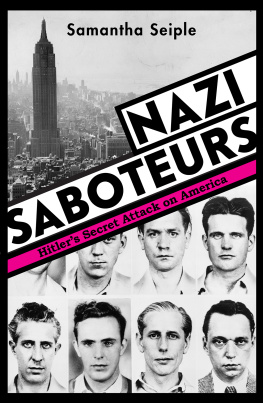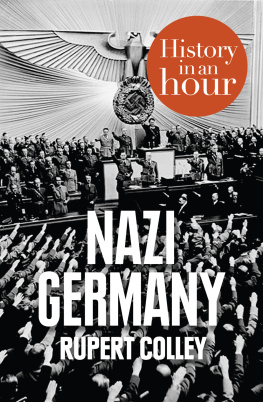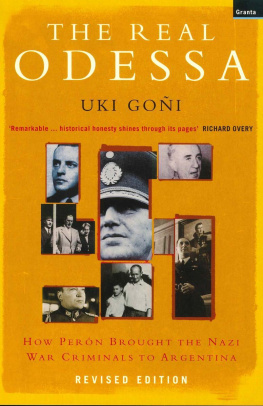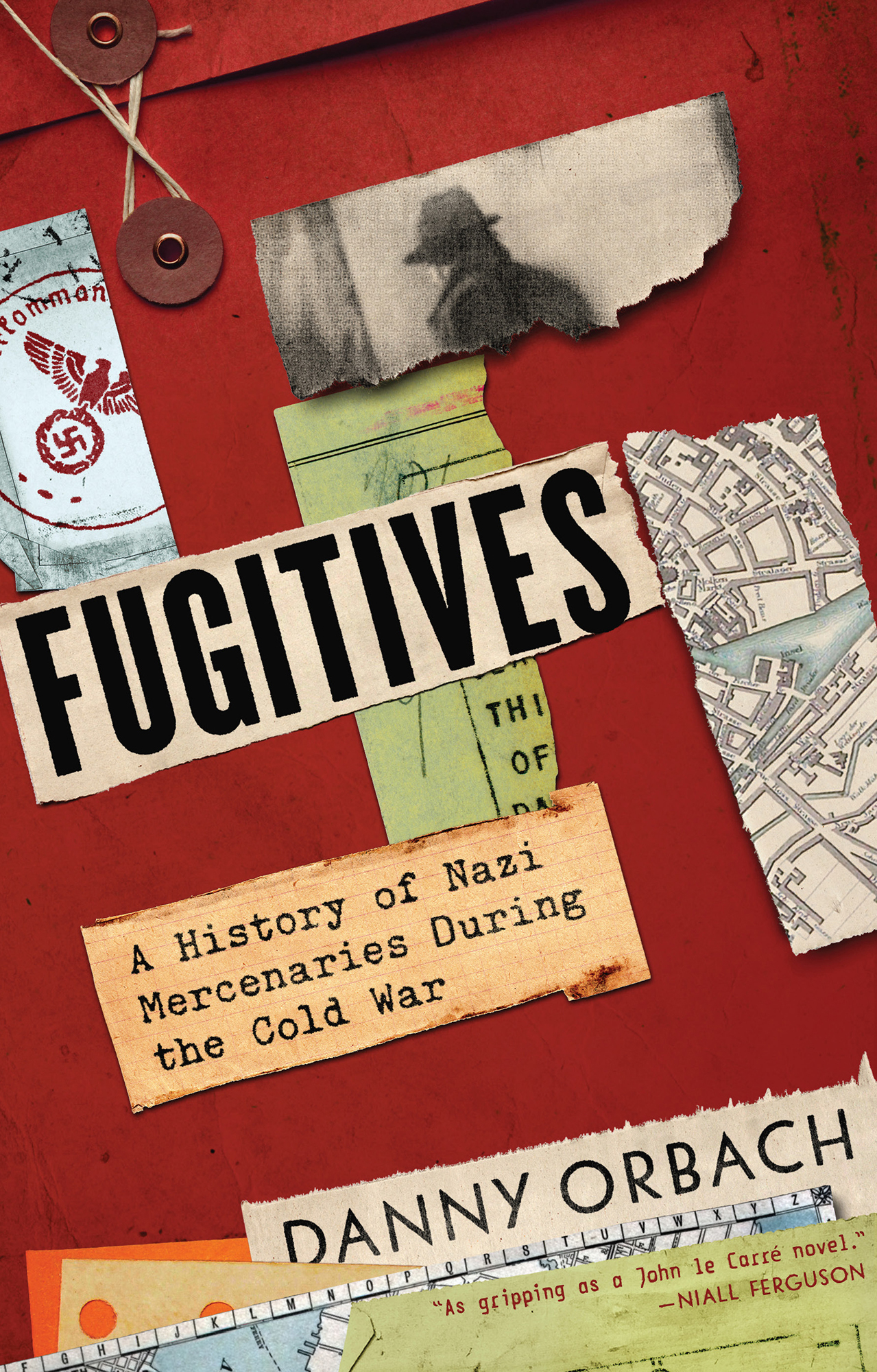Contents
Guide
Fugitives
A History of Nazi Mercenaries During the Cold War
Danny Orbach
s

FUGITIVES
Pegasus Books, Ltd.
148 West 37th Street, 13th Floor
New York, NY 10018
Copyright 2022 by Danny Orbach
First Pegasus Books cloth edition March 2022
Interior design by Maria Torres
Jacket design: Faceout Studio, Tim Green
Imagery: Getty Images, IStock, and Shutterstock
All rights reserved. No part of this book may be reproduced in whole or in part without written permission from the publisher, except by reviewers who may quote brief excerpts in connection with a review in a newspaper, magazine, or electronic publication; nor may any part of this book be reproduced, stored in a retrieval system, or transmitted in any form or by any means electronic, mechanical, photocopying, recording, or other, without written permission from the publisher.
ISBN: 978-1-64313-895-4
Ebook ISBN: 978-1-64313-896-1
Distributed by Simon & Schuster
www.pegasusbooks.com
To Adi
INTRODUCTION
There is no present, or futureonly the past, happening over and over again.
LEON URIS, TRINITY

THE DOWNFALL OF the Third Reich left millions of Germans habituated to serving Hitlers machine of conquest and genocide bereft of employment and of a cause to embrace. Some were professional soldiers, civil servants, and intelligence experts tainted by their association with Nazism. Others were true believers in Nazi ideology, members of Nazi security organizations such as the SS and the SD, or direct perpetrators of genocide and other war crimes.
Supposedly, the latter at least would face unremitting justice for their crimes, for the victorious allies had vowed to hunt them down to the ends of the earth. In practice, no more than a handful of Nazi leaders were tried before the international tribunal at Nuremberg. Plans for thorough denazification of West German society died with a whimper as it became clear that purging West Germany of Hitlers professional soldiers and civil servants, or even Nazi party members, would make its administration prohibitively expensive.
Accordingly, the Federal Republic that rose from the ruins of the Third Reich, while vowing a clean break with Germanys Nazi past, was filled with individuals hiding awkward Nazi skeletons in their closets. Nowhere was this truer than in its intelligence services, which saw former Nazis as uniquely reliable agents in the struggle against communismand uniquely useful, and deniable, agents of influence in the countries of the Third World.
There was no shortage of such supposedly reliable Nazi agents, as thousands of war criminals had slipped away to the four corners of the world and many others made their own arrangements with the Western allies. Contrary to the perception of former Nazis as solid anti-communists, however, many of them developed similar arrangements, and even ideological attachments, to the Soviet Union and its satellites. Others became freelance arms traffickers, spies, and covert operators, interested in nothing but financial compensation for the skills they developed under the Third Reich. Finally, some retained fantasies of future National Socialist resurgence. In fact, as will become apparent, the dividing line between pro-Western, pro-Soviet, freelance mercenaries and Nazi revanchists was often blurred, with individuals frequently working more than one angle at once, changing sides, and acting as double or even triple agents.
Ultimately, however, it was the Soviet Union that profited most from these morally compromised individuals. This was partially because they offered an opening into the inner working of the Federal Republics innards, and partially because association with Nazi criminals posed a serious political liability for the West Germans, widely perceived as the heirs of the Third Reich. Indeed, the eventual and inevitable exposure of the extent of this association, and the extent to which it had been exploited by the Soviet Union, crippled the intelligence capabilities of West Germany against East Germany and the Soviets for decadesprecisely as Moscow planned.
The hubris and self-delusion that led West Germanys political and intelligence leadership to sanction reliance on Nazi criminals echoed in many respects the fantastic self-delusions of these supposed agents of influence who dreamt of playing an independent role between the Western and Eastern Blocs. From posh German restaurants, smuggler-infested Yugoslav ports, Damascene safehouses, and fascist holdouts in Francos Spain, Nazi die-hards created a chaotic network of influence and information. Indeed, the OTRACO Firm even fantasized of becoming the indispensable patrons of Arab revolutionaries and nationalists, funding neo-Nazi movements throughout Europe, and establishing a base for a German national resurgence.
To be sure, Nazi refugees and the Federal Republic officials who relied on them were not the only deluded actors. False perceptions of the reliability and influence of Nazi agents led the CIA to rely on them to create anti-communist stay-behind guerillas in the Soviet Unions satellite states, to be triggered when the inevitable WWIII broke out. And, in a very different way, the long shadows cast by the memories of WWII and the Holocaust, memories inflamed by the antics of Nazi loose cannons in the Middle East, led France and Israel to massively overreact to the involvement of German arms smugglers in Algeria and German rocket scientists in Egypt. These overreactions endangered core national interests as well as the common front against the very real, and very present, Soviet menace.
My goal in this book is to tell the story of the Nazi mercenaries in the decades following WWII, then explain the significance of the phenomenon and the ways it converged with the larger picture of the Cold War, the drama of the intra-German struggle, the Israeli-Arab conflict, and the clandestine wars of secret services. In the first part, Downfall and Resurgence, we will follow the West German secret service from its inception as a group of mercenaries working for the United States until its heyday as the Federal Republics sole foreign intelligence agency. We will trace the delusions of its founder, General Reinhard Gehlen, that Nazi security experts would serve him best in fighting communism and enhance his own personal career. However, by employing Nazi mercenaries and sharing their fantasies, Gehlen exposed himself to Soviet penetration and planted the seeds of his own destruction.
In the second part, Fallout and Consequences, we will zoom out to explore worldwide covert operations. We will see how Nazi arms traffickers and freelance spies created a worldwide gunrunning scheme, intending to exploit its earnings for political buildup and personal enrichment. Mired in fantasies of easy money and eventual National Socialist resurgence, they evoked parallel fears and illusions in France and West Germany, pushing the BND and its French counterpart, SDECE, to undermine the strategies of their own governments with reckless covert operations. The Mossad, Israels famed intelligence agency, also joined the fray, hunting some Nazi mercenaries while utilizing others in the Israeli-Arab conflict. In the third and final part, Aftershocks and Shadows, we will see how the Mossad, driven by irrational existential anxieties, launched a covert campaign of terror and intimidation against German rocket scientists in Egypt, thus giving rise to a near-terminal crisis between the Jewish state and West Germany. Nonetheless, the Mossad also used covert operations to resolve this conflict, with unexpected ramifications on Israels own campaign against fugitive Nazi criminals.









